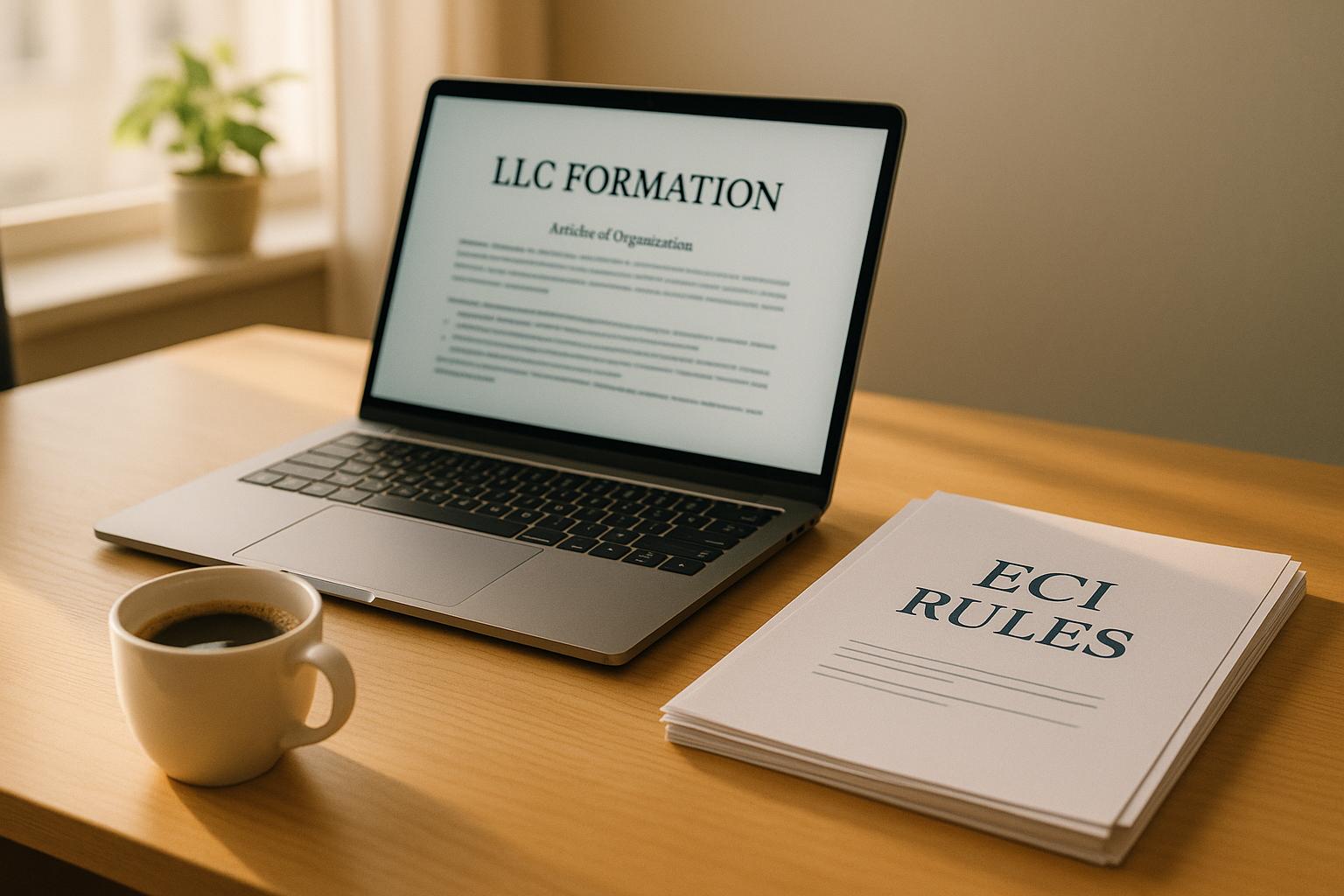Want to succeed as a foreign entrepreneur in the U.S.? Understanding American business culture is key. This article explains how mastering U.S. networking practices can help founders build connections, secure partnerships, and grow effectively. Here's what you'll learn:
- The challenges foreign founders face, like communication styles and meeting etiquette.
- Key U.S. business norms: direct communication, punctuality, and clarity.
- Practical steps to adapt, including creating a U.S.-style pitch and leveraging local experience.
- Tips for managing time and addressing communication errors.
Core U.S. Business Practices
U.S. Business Norms
In the U.S., business culture strikes a balance between professionalism and a relaxed, approachable tone. American professionals value direct and efficient communication, often paired with a friendly demeanor. For founders accustomed to more formal business settings, this can feel like a notable shift.
Here are two key traits of U.S. business interactions:
- Direct Communication: Conversations are typically straightforward, with a focus on achieving business goals.
- Punctuality: Being on time is a must in professional environments and shows respect for others' schedules.
These practices create a foundation for clear and effective communication in daily business interactions.
U.S. Communication Methods
Building on these norms, communication in the U.S. emphasizes clarity, brevity, and approachability. Professionals often:
- Write emails that are short and focus on actionable items.
- Begin meetings with a polite but brief exchange before diving into business.
- Use clear, specific language, avoiding vague or indirect hints.
- Follow up quickly to keep conversations and projects moving forward.
Networking Rules and Standards
Networking in the U.S. relies heavily on making a strong first impression and staying engaged through timely follow-ups. Whether in person or online, being clear, responsive, and professional is key to forming meaningful business connections.
sbb-itb-fcd17fe
Steps to Learn U.S. Business Practices
Learning Through Local Experience
To understand U.S. business practices, immerse yourself in the local environment. The San Francisco Bay Area is an excellent place for foreign founders to gain firsthand exposure to thriving global businesses and make valuable connections.
- Attend industry events to see how U.S. professionals present themselves and network effectively.
- Analyze local success stories to pick up on communication strategies and stakeholder engagement techniques.
- Actively network with local entrepreneurs to observe and adopt their communication styles.
This hands-on experience helps you fine-tune your approach and align with U.S. business norms.
Creating a U.S.-Style Pitch
Once you've gained local insights, work on adapting your pitch to resonate with U.S. audiences. American business culture prioritizes directness and clarity. To craft a pitch that stands out:
- Start with your strongest points and key performance metrics.
- Use straightforward language, steering clear of unnecessary jargon.
- Highlight your growth potential and market opportunities.
- End with clear, actionable next steps.
Working with Expert Services like Fellow

Partnering with experts, such as Fellow, can help you navigate U.S. business practices more efficiently, especially in hubs like the San Francisco Bay Area.
"Fellow feels like an extension of our team - always available, always ready to help. Their 24/7 support and subscription model remove the stress of billable hours, making legal work seamless for startups." - Jiri Diblik, VOS.health
Expert services like Fellow offer:
- Cultural Insights: Help bridge the gap between U.S. and EU business environments.
- Proactive Solutions: Identify and address potential issues early.
- Cost-Effective Support: Fixed-fee structures tailored to startup budgets.
- Quick Turnaround: Access support with response times often under 12 hours.
Combining local experience, a well-crafted pitch, and professional guidance equips foreign founders to navigate U.S. business culture effectively, ensuring they stay competitive and prepared for success.
Solving Common U.S. Business Challenges
U.S. Time Management Standards
In the U.S., punctuality and efficient scheduling are key to building strong business relationships. Being mindful of time management expectations can make a big difference.
Meeting Scheduling
- Plan meetings 48–72 hours in advance and confirm them within 24 hours.
- Arrive 5–10 minutes early for in-person meetings, or 2–3 minutes early for virtual ones.
Calendar Management
Use calendar tools with automatic time-zone conversion to avoid scheduling mistakes.
Response Times
Quick communication is important in U.S. business culture. Here’s what’s typically expected:
- Emails: Respond within 24 hours.
- Meeting requests: Confirm within 48 hours.
- Follow-ups: Get back within 1–2 business days.
Up next: How to handle communication errors effectively.
Addressing Communication Errors
Mistakes happen, but how you handle them can define your business relationships. In the U.S., being upfront and solution-focused is the way to go.
Direct Communication
It’s normal - and often preferred - to address issues openly. If there's a mistake or misunderstanding, acknowledge it clearly and offer a solution.
Recovery Strategies
Here are some practical steps to recover from communication missteps:
- Send an apology email within an hour. Include alternative options or times, and outline steps to avoid similar mistakes in the future.
-
Professional Support: If navigating U.S.-European business relations feels challenging, consider consulting services that specialize in this area. They can assist with:
- Understanding cultural nuances in communication.
- Following standard business protocols.
- Proper follow-up techniques.
- Meeting and networking expectations.
U.S. professionals value honesty and a focus on solutions. Avoid over-apologizing and instead, show your commitment to improvement with clear, actionable steps.
Conclusion
Key Takeaways
Building a strong network in the U.S. requires understanding its business culture and practices. Success hinges on grasping the nuances of communication, etiquette, and relationship-building.
Here are some skills to focus on:
- Understanding U.S. communication styles and business etiquette
- Managing time effectively
- Creating and presenting pitches tailored to U.S. audiences
- Establishing authentic relationships
For foreign founders, specialized resources can help bridge cultural differences and ease the transition into the U.S. market. Start applying these strategies now to create a thriving professional network.
Laying the Groundwork for Your U.S. Network
Use these skills to establish a foothold in the U.S.:
Building the Basics
- Attend regular networking events and industry gatherings
- Optimize your LinkedIn profile with a focus on connecting with U.S. professionals
- Set up clear communication practices that align with U.S. norms
Getting the Right Support
- Understand and comply with local legal requirements
- Build relationships with key players in your industry
- Develop growth strategies tailored to the U.S. market
- Tap into local business communities and resources

.svg)




